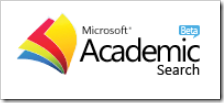Penerapan Transparansi Lembaga Pengelola Zakat (Studi Pada Lembaga Amil Zakat Dan Unit Pengelola Zakat Baznas Provinsi Banten)
Abstract
As an institution that manages social funds, transparency is something that must be met for the Amil Zakat Institution and the Zakat Management Unit. Public distrust of zakat management institutions is one of the causes of the gap between zakat potential and the realization of zakat collection in Banten Province. This study aims to analyze the implementation of the transparency of the Amil Zakat Institution and the Baznas Zakat Management Unit in Banten Province. This study used qualitative research methods. The results showed that the Amil Zakat Institute in Banten province had implemented financial transparency, management, and programs in zakat management activities. Similarly, the principles of transparency, accountability, effectiveness, and collaborative distribution have been applied by the Zakat Management Unit of Baznas Banten Province.
Keywords
Full Text:
PDFReferences
Ascarya, & Yumanita, D. (2018). Analisis Rendahnya Pengumpulan Zakat Di Indonesia Dan Alternatif Solusinya. Bank Sentral Indonesia, 9, 21.
Asfarina, M., Ascarya, A., & Beik, I. S. (2019). Classical and contemporary fiqh approaches to re-estimating the zakat potential in Indonesia. Journal of Islamic Monetary Economics …. http://jimf-bi.org/index.php/JIMF/article/view/1068
Barth, M. E., Konchitchki, Y., & Landsman, W. R. (2013). Cost of capital and earnings transparency. Journal of Accounting and Economics, 55(2–3), 206–224. https://doi.org/10.1016/j.jacceco.2013.01.004
Bushman, R. M., Piotroski, J. D., & Smith, A. J. (2004). What Determines Corporate Transparency? 42(2).
Dubbink, W. (2007). Transparency gained, morality lost: A critique of the administrative conceptualization of CSR, illustrated by Dutch policy. In BUSINESS AND SOCIETY REVIEW-BOSTON AND …. researchgate.net. https://www.researchgate.net/profile/Wim-Dubbink/publication/254801533_Transparency_Gained_Morality_Lost_A_Critique_of_the_Administrative_Conceptualization_of_CSR_Illustrated_by_Dutch_Policy/links/5707a39208ae8883a1f7e4c7/Transparency-Gained-Morality-Lost
Firdaus, M., Beik, I. S., Irawan, T., & Juanda, B. (2015). Economic Estimation and Determinations of Zakat Potential in Indonesia. Jeddah: Islamic Research and Training Institute.
Huda, N., & Sawarjuwono, T. (2013). Akuntabilitas Pengelolaan Zakat melalui Pendekatan Modifikasi Action Research. Jurnal Akuntansi Multiparadigma. https://jamal.ub.ac.id/index.php/jamal/article/view/263
Indonesia Zakat Outlook. (2018). Diakses pada tanggal 13 April 2022 dari https://www.puskasbaznas.com/publications/outlook/indonesia-zakat-outlook
Nurfadhilah, I. R., & Sasongko, C. (2019). Web-Based Accountability in an Islamic Non-Profit Organization: A Case Study of Badan Amil Zakat National in Indonesia. In Asia Pacific Business and …. atlantis-press.com. https://www.atlantis-press.com/article/125913766.pdf
Williams, C. C. (2005). Trust diffusion: The effect of interpersonal trust on structure, function, and organizational transparency. Business and Society, 44(3), 357–368. https://doi.org/10.1177/0007650305275299
DOI: http://dx.doi.org/10.35448/jiec.v7i1.20484
Refbacks
- There are currently no refbacks.

This work is licensed under a Creative Commons Attribution-ShareAlike 4.0 International License.
Copyright © Syi’ar Iqtishadi: Journal of Islamic Economics, Finance and Banking.


















